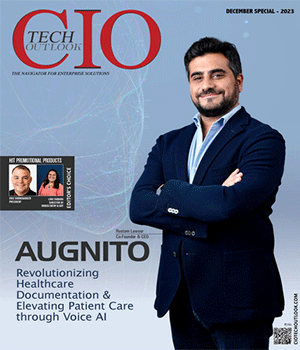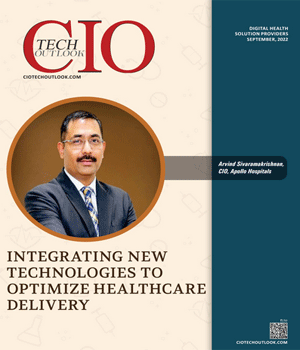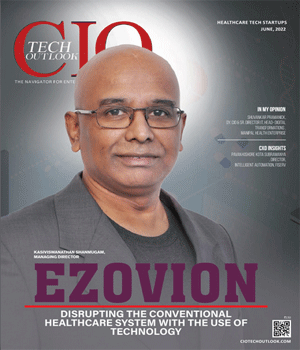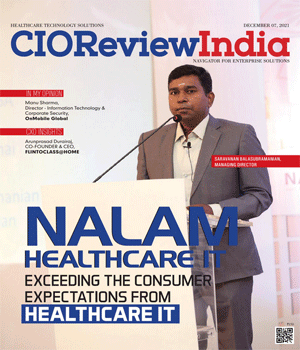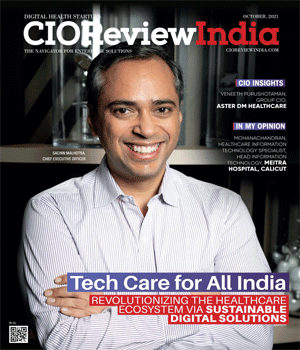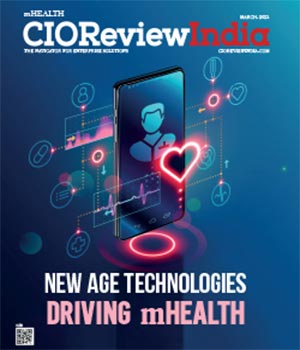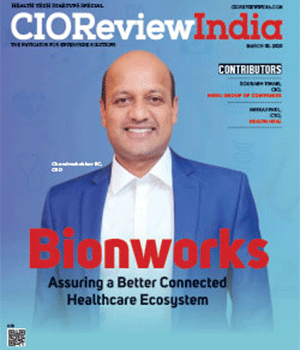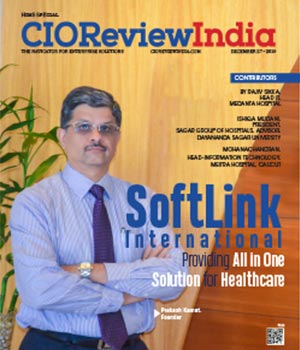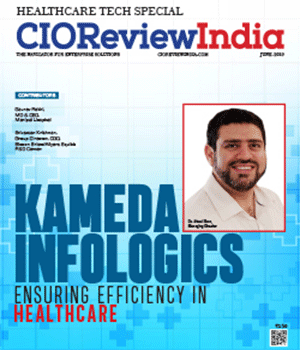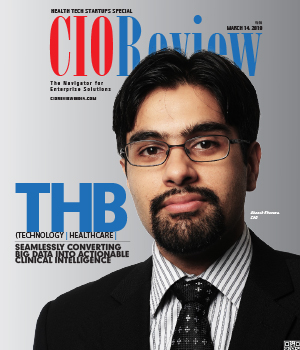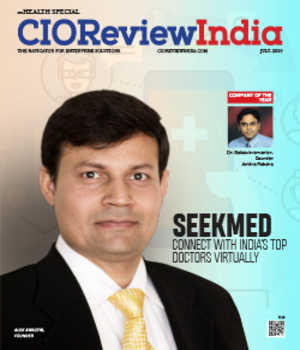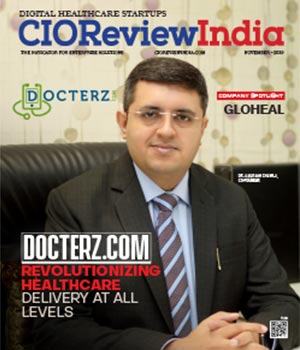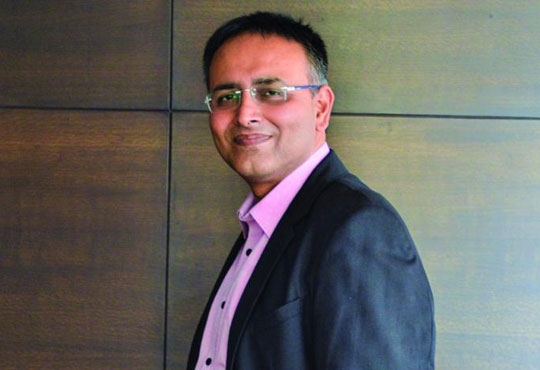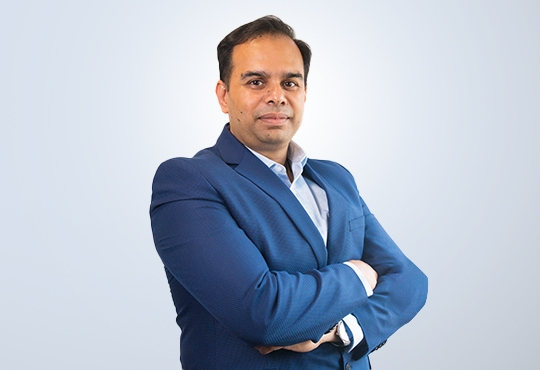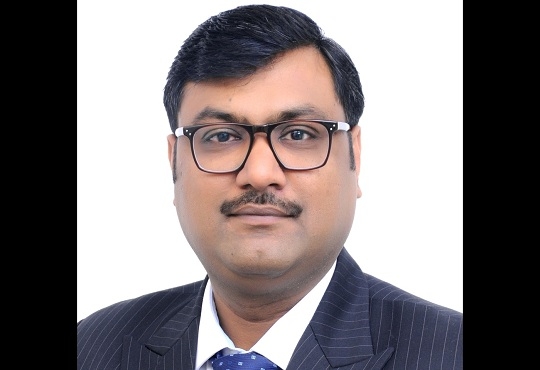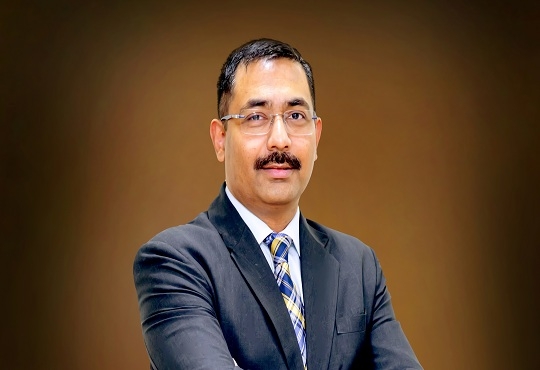
The Uphill Battle of CIOs Implementing Health Information Systems
Hridkamal Roy, Assistant Editor, CIOTechOutlook | Friday, 05 January 2024, 14:08 IST
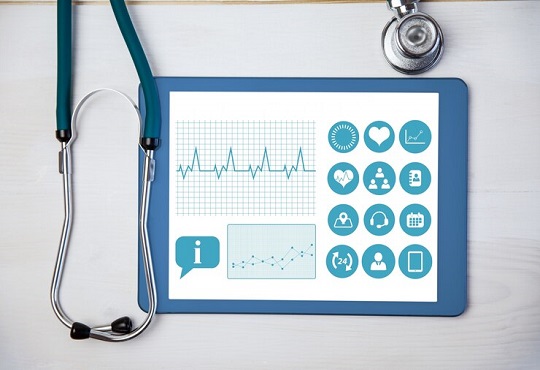
The growing interoperability opportunities in the health-tech sector have made all healthcare CIOs aware of the changes that need to be brought in the systems in order to execute smooth information interchange and application of the collected data. Technology innovations are bringing about huge changes in each and every sector of the business ecosystem among which the healthcare sector stands out as an example. The numbers of health-tech innovations that have taken place over the last two decades have reshaped the healthcare sector as a whole. The emergence of digital health information systems have been immensely helpful in the storage of data on patient health but have also brought about complexities in the operations executed by healthcare CIOs. These have emerged as healthcare became more sophisticated with a personalized approach towards the health of every patient in order to provide optimal care. However, in order to overcome all complexities and challenges, healthcare CIOs are often advised to take care of a few factors which can help them avoid operational discrepancies.
Safety and Security
An abundance of patient’s health information is collected by the healthcare organizations that get documented in the electronic storage systems. In this regard, it becomes imperative that all the data is shared and cross checked through different sources like doctor’s offices, ambulatory organizations, pharmacies and outpatient care facilities in order to avoid any kind of misinformation. The documented information must also be at par with the regulatory guidelines prescribed by the healthcare standardizing authorities of any nation e.g HIPAA (Health Insurance Portability and Accountability Act in the US and IPHS (Indian Public Health Standards) under the National Rural Health Mission in India. All healthcare CIOs need to have a definitive structure for carrying out these operations and maintain the needed security at all levels.
Gartner Vice President Andy Rowsell Jones said, “CIOs are on the road from digital experimentation to digital scaling.”
Interoperability Maintenance
As we can see that gigantic amounts of healthcare information interchange take place all across the industry where major setbacks can take place with the slightest bit of misinformation. This is exactly why interoperability in operations must be ensured at all times. Healthcare institutions at different levels need to make use of patient’s health records in order to provide optimal care. Furthermore, there are several clinical technologies like MRIs (Magnetic Resource Imaging), CT (Computerized Tomography) Scans and data organization in the Electronic Health Records (ECR) that require elaborated IT infrastructure and also need to be connected with the main IT systems of an organization. “Every physician practice, hospital, imaging center, ASC and our many other care venues are connected together through our Health Information Exchange technology so all data about a patient can be delivered where and when it is needed”, said John Bosco, CIO, Northwell.
Tech Optimization
Various changes have taken place in the healthcare sector post pandemic. The lockdown situation had restricted patients from visiting hospitals which is why healthcare CIOs had to adapt to new technologies for treatment at home and also incorporate telemedicine operations for patient care. The usage of IoT technologies has been instrumental in this regard and most importantly, Conversational AI has created a huge difference in observation of patient outcomes. Conversational AI which is also referred to as Adaptive Communications is emerging as a new approach to digital conversational interfaces. The foundations of conversational AIs lie in the advanced language-based techniques like computational linguistics which means that instead of following a program, the AI instead models human language to communicate with patients in an effective way. “We have got to make consumers feel we know them and their preferences when they come to us, make it easy to get an appointment through an app on their smartphone, and reduce the burden for them to provide the information we need to collect in order to treat them and produce a bill for our services”, mentioned John Bosco, CIO, Northwell
Change Management
It is evident that after the adoption of new technologies in a business for maintenance of operations, a significant amount of organizational change takes place. Healthcare CIOs are at the center of this change because they are solely responsible for the implementation and smooth processing of these technologies. With times changing rapidly, the definition of CIO is also changing. Now, they are not only responsible for the adaption of the latest healthcare technologies, but also involve themselves in brainstorming ideas as how to make the IT infrastructure better every day and be called the Chief Innovation Officer.
Hiring Managed Services
Despite strong IT infrastructure, we can see that the healthcare organizations are facing several issues on hiring and retention of employees. One reason for this might be the lack of tech infrastructure for hiring and HR purposes. Lack of a competitive salary structure might also be a one of the reasons for this kind of a setback. Here, healthcare CIOs have come up with the idea of hiring managed services for hiring and retention purposes. The collaboration of CIOs with 3rd party services has resulted in creating a technology ecosystem that is different from the core IT structure of the healthcare industry.
The healthcare sector has advanced immensely with the advent of health information systems. Data storage and collection have become easier than before for healthcare institutions and we are most likely to witness more innovations in this segment in the years to come.
CIO Viewpoint
Integrating New Technologies to Optimize...
By Abhrasnata Das
Quantum Shift in Healthcare Driven by...
By Abhrasnata Das
Product Adoption: Realizing The Real Value
By Ashish Pandey, CIO, GSK Consumer Healthcare India
CXO Insights
HIT Promotional Products: Fostering Empowerment...
By Eric Shonebarger, President & Lori Thibado, Director of Order Entry & Art
Addressing the Data Management Challenges in...
By Richa Singh
Elevating Patient Experience with Remote...


